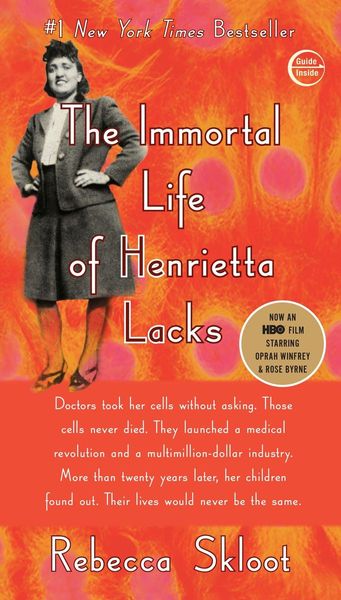
The Immortal Life of Henrietta Lacks
Documents the story of how scientists took cells from an unsuspecting descendant of freed slaves and created a human cell line that has been kept alive indefinitely, enabling discoveries in such areas as cancer research, in vitro fertilization and gene mapping.
Reviews
Julia Rivera@jriver23
Ryan Ellison@ryako
Bria@ladspter
elizabeth@ekmclaren
Vicky Nuñez @vicky21
Kiera@kbae_slothlover
Laura Mauler@blueskygreenstrees
Traci Wilbanks@traci
tianna@tianna
Colleen@mirificmoxie
Kelly@kap32
Vishwa@vishwa
Anna Bold@bold
Kathy Jedrzejczyk@kathyj84
Belle@bellebcooper
Sonja H@sonjah
Vilde@vforvilde
Ivan Zarea@ivaaan
Melissa Schwartz@melschwa18
Sarah Escorsa@shrimpy
Flavia Louise@flaviaaalouise
Ellie Younger@ellierose2000
MaKenzie Trapp@mtrapp05
Jane McCullough@janemccullough
Highlights
Elizabeth@el76sdc
Fiona Ee@chocolatewaffles